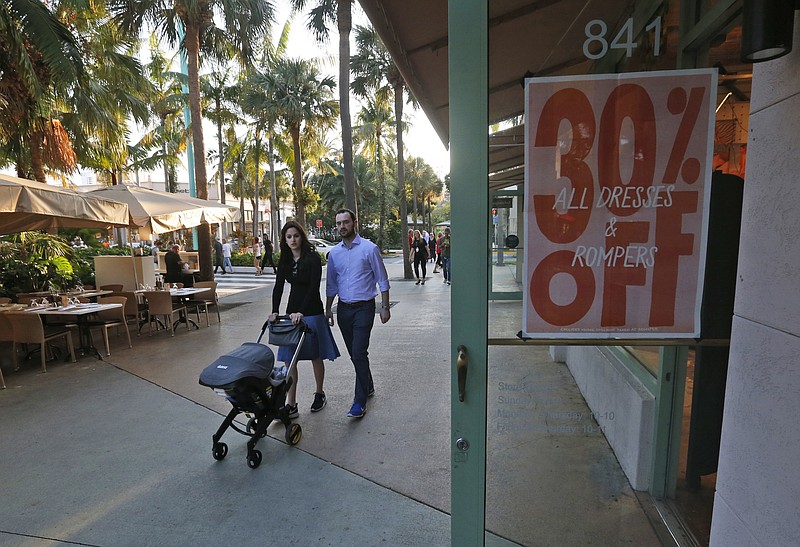WASHINGTON (AP) - American consumers feel a bit less confident this month, their spirits pulled down by Hurricanes Harvey and Irma.
The Conference Board says its consumer confidence index fell to 119.8 in September from 120.4 in August. Conference Board economist Lynn Franco says that confidence "decreased considerably" in hurricane-hit Florida and Texas.
The reading still shows that U.S. consumers are in a mostly sunny mood, suggesting that "the economy will continue expanding at its current pace," said Franco, the Conference Board's director of economic indicators. The U.S. economy grew at a solid 3 percent annual rate from April through June, lifted by healthy consumer spending.
Just 18.1 percent of respondents told that Conference Board that jobs were "hard to get" in September - the lowest share since August 2001.
The index takes into account Americans' views of current economic conditions and their expectations for the next six months.
Their view of today's economy slipped from August when the assessment was the sunniest in 16 years. Their outlook rose slightly in September.
The overall index hit bottom at 25.3 in February 2009 at the depths of the Great Recession before rebounding as the U.S. economy recovered.
Economists pay close attention to the numbers because consumer spending accounts for about 70 percent of U.S. economic activity.
Michael Pearce, U.S. economist at Capital Economics, said the solid September reading "underlines just how resilient the household sector is" despite the North Korean nuclear threat, a string of natural disasters and the racial tensions arising from the violent protests last month in Charlottesville, Virginia.
